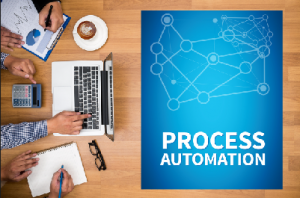 In today’s competitive business environment, even small and medium sized companies are investing in Digital Transformation via process automation in efforts to reduce costs, increase efficiencies, and maintain customer satisfaction. The universal directive to businesses to “do more with less” is being increasingly satisfied through the application of software.
In today’s competitive business environment, even small and medium sized companies are investing in Digital Transformation via process automation in efforts to reduce costs, increase efficiencies, and maintain customer satisfaction. The universal directive to businesses to “do more with less” is being increasingly satisfied through the application of software.
According to a 2015 report by Gartner, Inc., worldwide spending on enterprise application software totaled US $149.9 billion in 2015, a 7.5% increase from 2014 spending. And now, Gartner reports, as organizations are looking for ways to shift spending from capital expenditures to operating expenditures, spending is moving toward the automation of processes.
Digital transformation, or the automation of business processes has huge potential to increase business agility and improve results. The challenge is where to start. Beginning with spend management can generate big returns in a short period of time and be a stepping stone to a larger digital transformation effort.
So what happens if you don’t automate processes?
Process automation is no longer a desirable solution for modern businesses; it is essential. Without automation, processes that traditionally use phone, email, and paper trails to support and feed ERP systems with information are managed with little or no control. Manual data inputting is universally laborious, costly, and error-prone.
So what are the implications? Take master data management, for example. When vital master data is incorrect, it negatively affects service level quality as well as the reputation of the Finance and Purchasing departments. Without accurate and timely visibility into processes, there is reduced transparency, so maintaining compliance becomes difficult and time-consuming at best. The combination of these effects can have significant impact on a business in the long term.
End-to-end automation: purchase-to-pay (P2P)
Automating the entire purchase-to-pay string of processes is one approach to end-to-end automation that can truly enable a company to reap more gain from its system. By starting automation with the purchase requisition process, each of the subsequent P2P processes is improved.
Process area: Procurement / Purchase requisition
It’s estimated that 30%–45% of indirect purchasing in organizations is “maverick” purchasing, with price costs averaging 35% more than agreement prices. Standard purchase requisitioning processes employ the use of an internal document that contains a description and quantity of the goods or services to be purchased, a required delivery date, an account number, and the maximum cost. Even the names of suggested supply sources can be included.
Manual purchase requisition processing
A person inside the organization generates a purchase requisition to notify Procurement of items needed via phone, email, sticky notes, etc. In some organizations, a person may order an item directly via phone, sidestepping the requisition process altogether. The requisition is normally sent to a superior for approval in a non-standard process lacking visibility. Upon approval, the requisition is processed by Procurement, and a purchase order is created inside AP.
Automated purchase requisition processing
An authorized person creates a purchase requisition for any approved item via an easy-to-use, simple web application with access to existing online catalogs. An automated workflow for approval is immediately initiated, and approvals are recorded in a visible audit trail. Upon approval, an approved purchase order is generated automatically in your ERP system.
Advantages of automating:
- Reduced costs for purchasing, logistics and accounting
- Optimized supplier selection
- Better basis for price and contract negotiations
- Easier process for personnel, enabling greater compliance and user adoption
- Improved incoming invoice processing and reporting ability
- Low total cost of ownership as automation process is fully integrated with the ERP system
By utilizing today’s connectivity technology and communication channels, specifically the Internet (or Cloud), Mobile Devices, and Social Networks, together with Rules-based Workflow Technology, we can transform business processes from the old and slower 20th century way of operating a business into the new and faster 21st century way of operating a business in real-time.
For further information on Digital Transformation (DT), we invite you to review our prior blog posts, where you’ll learn more about DT, what all the hype is, what your peers and competition are gearing up for, and how ISS Group can assist in your overall DT strategy. As we have been for the past 20 years; we’re here to help…!
Digital Transformation Solutions from ISS Group
Who is ISS Group?
ISS Group delivers Solutions that Digitize Business Processes to Connect People and Processes via the Cloud, Mobile devices, and Social Networks
55 Madison Ave, Suite 400
Morristown, NJ 07960
Toll Free: 888-547-7476
Direct: (973) 729-0013







